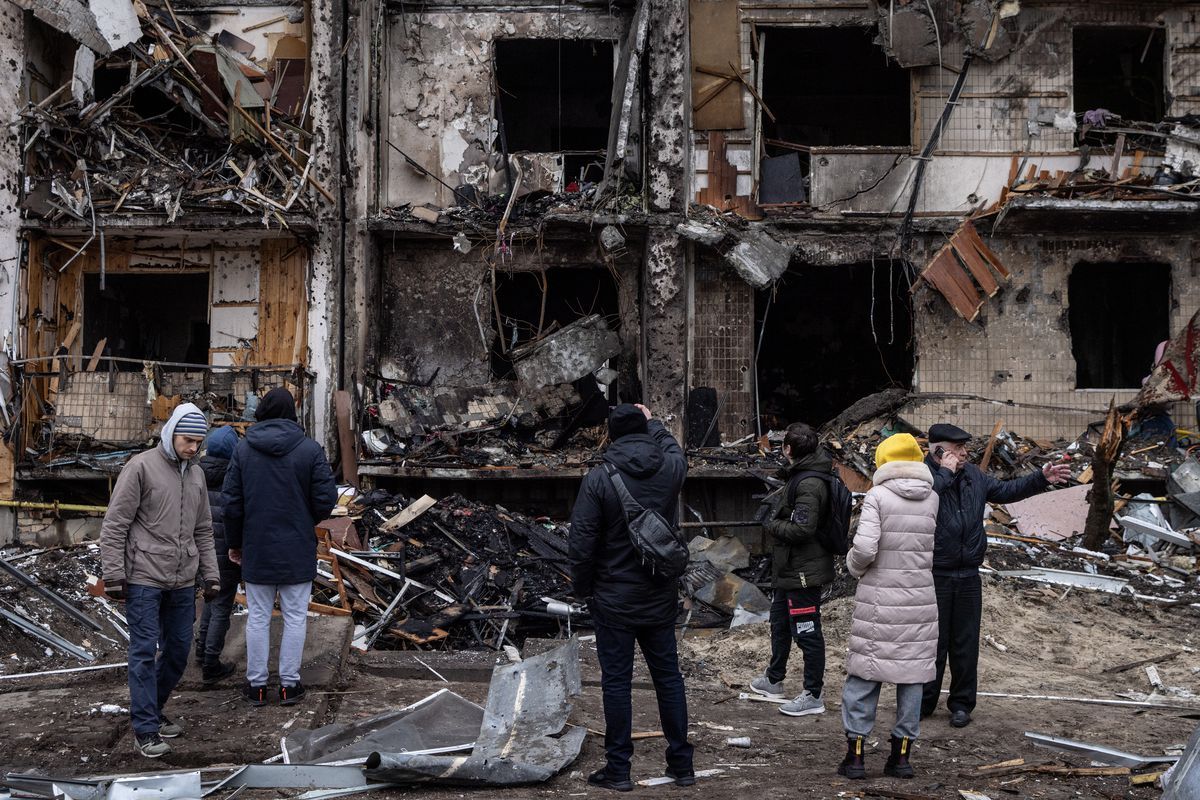Reconstructing Ukraine: A Multifaceted Approach to Secure a Vibrant Future
As the world remains on tenterhooks over Russia's war in Ukraine, the endgame of this ongoing conflict remains uncertain. Regardless of the outcome, there’s a looming certainty: Ukraine will require a massive reconstruction effort that might be the most significant since post-World War II Europe. The stakes

As the world remains on tenterhooks over Russia's war in Ukraine, the endgame of this ongoing conflict remains uncertain. Regardless of the outcome, there’s a looming certainty: Ukraine will require a massive reconstruction effort that might be the most significant since post-World War II Europe. The stakes for not only Ukraine but also the global community are high; a militaristically successful but economically weakened Ukraine could embolden future aggression from Russia.
A Unique Reconstruction Challenge
Contrary to Iraq and Afghanistan, Ukraine presents a different set of challenges and opportunities for reconstruction. It is a country with a functional government, strong national cohesion, and a digitalized administrative system more advanced than even some Western nations. These domestic strengths position Ukraine more closely to the reconstruction models followed in Europe post-World War II, after the Cold War, and post-Yugoslavia.
Financing the Reconstruction
Financing will be a monumental challenge. While aid will play an essential role, history shows that the bulk of financing for reconstruction comes from private investment. Ukraine's potential sources of funding extend beyond the conventional paradigms to include frozen Russian assets. Although controversial and legally complicated, these assets could be another avenue to fund the country's recovery.
An International Collaboration
The United States and the European Union must work in partnership, with the former taking the lead on security arrangements and the latter focusing on economic assistance. This division is not just logical but also aligned with Ukraine's likely path towards EU accession.
Local and Civil Society Involvement
One of the significant lessons learned from past reconstructions is the necessity of local and civil society engagement. Ukraine's decentralized governance and strong civil society offer the potential for an effective bottom-up approach.
The Imperative of Reform
Reconstruction cannot be an isolated endeavor. Ukraine's systemic issues, particularly its long-standing corruption problems, also need addressing. The reconstruction period offers a unique moment for Ukraine to institute reforms. The prospect of EU membership could serve as a compelling motivator for these transformations.
Security As The Bedrock of Reconstruction
Security is the linchpin of any successful reconstruction effort. Ukraine must be secured against future aggression for reconstruction efforts to bear fruit and for the international community to invest confidently. The United States and NATO have options ranging from formalizing long-term security commitments to offering NATO membership, each with its own pros and cons.
Israel’s Role in Reconstruction
Israel, like Ukraine, is highly dependent on the stability of the Western alliance. A successfully reconstructed Ukraine will bolster this alliance and weaken the increasing security cooperation between Russia and Iran. Israel can offer unique contributions to Ukraine's recovery process, especially in fields like battlefield medical assistance, civil defense, and technical aid.
Looking Ahead
As the conflict continues, immediate planning for the future is crucial. Delays in initiating the reconstruction process could stymie the economy, impede the return of displaced citizens, and risk international disinterest. For the United States, legislation similar to that passed for Eastern Europe post-Cold War is imperative. In parallel, there must be a bipartisan effort to build American public support for a long-term policy commitment to Ukraine.
The war in Ukraine is not just a test of military resilience but also a challenge that will define the international community's capacity for collaborative reconstruction. Failure is not an option, as the ripple effects would not be confined to Ukraine but felt worldwide.
This article is based on insights from Charles P. Ries and Howard J. Shatz's commentary published in The Jerusalem Strategic Tribune on September 18, 2023.




